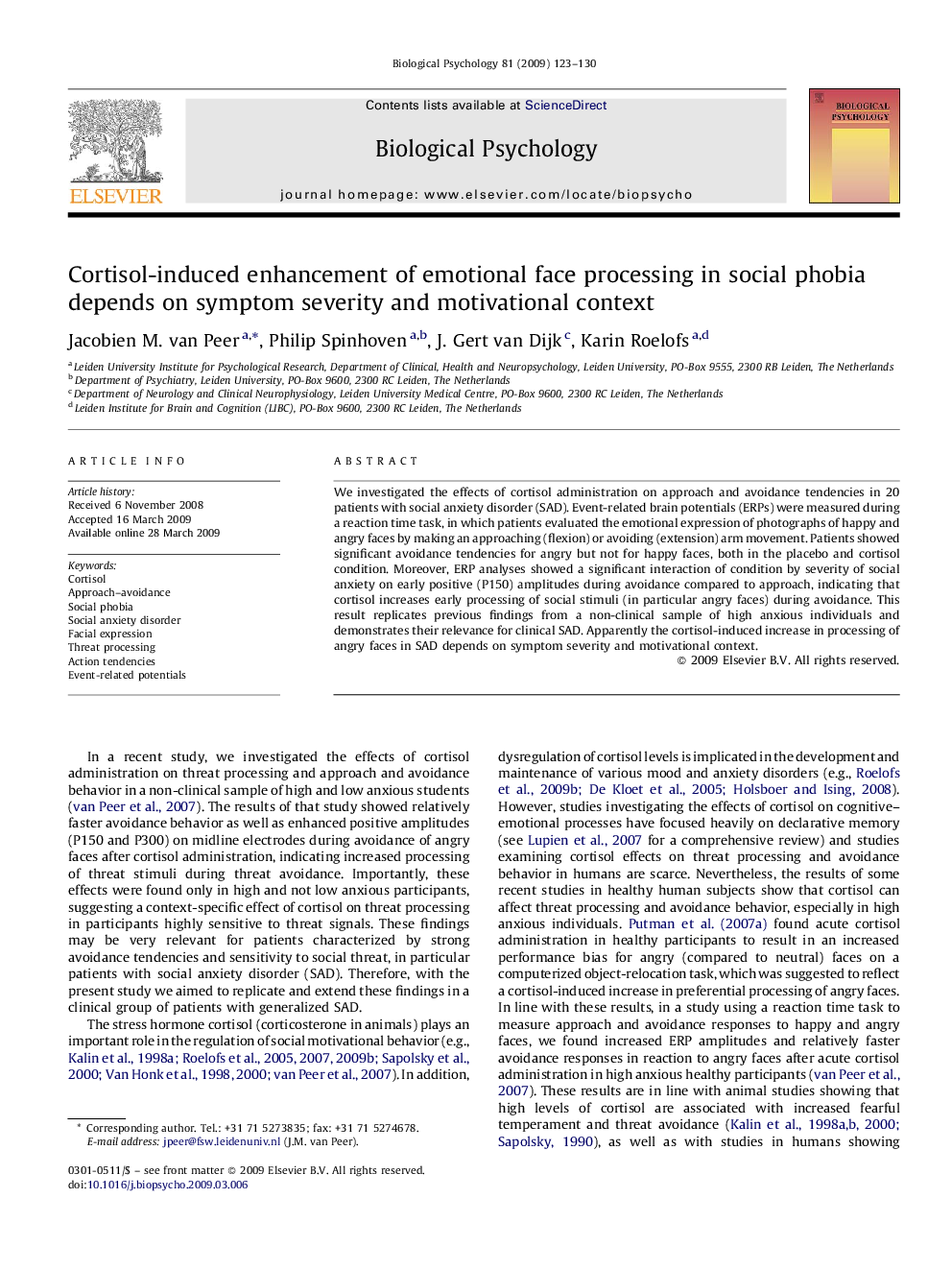| Article ID | Journal | Published Year | Pages | File Type |
|---|---|---|---|---|
| 921291 | Biological Psychology | 2009 | 8 Pages |
We investigated the effects of cortisol administration on approach and avoidance tendencies in 20 patients with social anxiety disorder (SAD). Event-related brain potentials (ERPs) were measured during a reaction time task, in which patients evaluated the emotional expression of photographs of happy and angry faces by making an approaching (flexion) or avoiding (extension) arm movement. Patients showed significant avoidance tendencies for angry but not for happy faces, both in the placebo and cortisol condition. Moreover, ERP analyses showed a significant interaction of condition by severity of social anxiety on early positive (P150) amplitudes during avoidance compared to approach, indicating that cortisol increases early processing of social stimuli (in particular angry faces) during avoidance. This result replicates previous findings from a non-clinical sample of high anxious individuals and demonstrates their relevance for clinical SAD. Apparently the cortisol-induced increase in processing of angry faces in SAD depends on symptom severity and motivational context.
